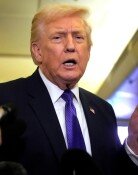Constitutional Court justice nominee
Constitutional Court justice nominee
Posted June. 30, 2011 07:25,
When asked, "Who attacked the South Korean naval vessel Cheonan," said Cho Yong-hwan, a Constitutional Court judge nominee recommended by the main opposition Democratic Party, at his parliamentary confirmation hearing Wednesday, "Chances are high that North Korea was behind it." When asked, "Are confident it was committed by Pyongyang, he said, "I accept the government`s statement, but since I didn`t take a firsthand look, using the expression `confident` would be inaccurate." He might be perplexed to hear the term "confident," but his expression "Since I didn`t take a firsthand look..." puts Cho`s qualification for the job into doubt.
No judge renders a guilty verdict because he or she witnesses a murder. The judicial principle of free introduction and free evaluation of evidence that a judge uses is based on laws, evidence, experience and logic to reach a verdict, even if the judge did not directly see the crime committed. For a judge to issue a guilty verdict, no "rational" suspicions must remain. Nevertheless, this is not as significant as to rule out all possible suspicions. On the contrary, ruling out evidence by raising suspicion that is rationally groundless goes beyond the scope of the principle of free introduction and free evaluation of evidence. The propeller of a North Korean torpedo was detected at the site of the Cheonan sinking as the smoking gun. One can dispute this evidence but saying "Since I didn`t take a firsthand look" is not the kind of comment a would-be justice should make.
Cho has worked as a lawyer since graduating from the Judicial Research and Training Institute. He is also a leading attorney for the law firm Jipyong & Jisung like Kang Kum-sil, who served as justice minister under the Roh Moo-hyun administration. A founding member of the civic group Lawyers for a Democratic Society, Cho was once recommended by the People`s Solidarity for Participatory Democracy as a Supreme Court justice candidate in 2008. This civic group is the organization that announced investigation results denying that the Cheonan sinking was due to a North Korean torpedo attack. Since this Constitutional Court seat is reserved for the main opposition Democratic Party, such an orientation is no cause for disqualification by the party. If a candidate has problematic qualifications, however, he or she must be replaced.
Cho falsely registered his residential address four times. At his confirmation hearing, he said, "After I was nominated, I conveyed the view (to the party) that I was unqualified since this could be cause for disqualification." After the inauguration of the Lee Myung-bak administration, more than a few people have taken government posts even after admitting to falsifying their addresses. Ironically, the lawyers` civic group that Cho is affiliated with has issued before a statement saying a candidate who falsified his or her address is unqualified for a government post. If Cho thought he was unqualified, he should have rejected his nomination.
Editorial Writer Song Pyeong-in (pisong@donga.com)



![17년 망명 끝에, 부모 원수 내쫓고 집권[지금, 이 사람]](https://dimg.donga.com/c/138/175/90/1/wps/NEWS/IMAGE/2026/02/18/133376197.3.jpg)



